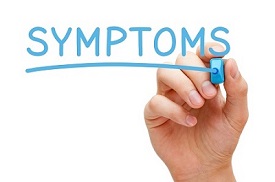Diabetes is a disease that affects millions of people in the United States. In fact, consensus estimates that nearly 10% of our population has diabetes—that’s over 30 million people! There are 2 types of diabetes. The most common type of diabetes is Type 2. This happens when your body does not have enough insulin to break down the sugar in your blood. In this article, you will learn about diabetes symptoms.
Contents
What is Diabetes?
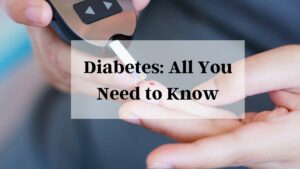
Regular changes in blood sugar levels are nothing to be concerned about. However, high or low blood sugars can cause some serious problems if they continue for a long time. Diabetes is a condition where your body is not able to produce insulin. There is two types of diabetes: Type I and Type II. Type I diabetes is an autoimmune disease where the body’s own antibodies destroy insulin-producing cells in the pancreas. This leads to a completely overwhelming need for insulin injections, which are lifelong. Type II diabetes is when people have too little of the hormone insulin. People with this have to have injections of insulin or they will die.
Types of Diabetes and Their Symptoms
There are basically 4 types of Diabetes. These are:
- Type 1 Diabetes
- Type 2 Diabetes
- Prediabetes
- Gestational Diabetes
Type I Diabetes
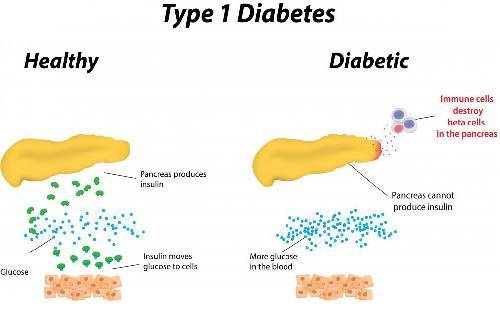
This type of diabetes characterizes by the complete lack or insufficiency in insulin production. Diabetes is a condition that causes your body to have too much sugar. This is because your pancreas doesn’t make enough insulin. Type 1 diabetics need to inject themselves with insulin every day, or they will get sick.
Symptoms are:
- Frequent urination (urinating more than usual) and extreme thirst. Also known as Polyuria and Polydipsia
- Unexplained weight loss or gain, especially if you’re eating the same amount but losing or gaining a lot of weight in a short period of time.
- Vomiting and nausea, especially if they don’t go away after a few minutes or hours. If you have diabetes, you may notice that your mouth gets dry and that is because of muscle tremors which make it difficult for the body to produce saliva. This can lead to ulcers on the tongue as well as bad breath.
- Feeling tired and/or irritable for no reason. This is because your body isn’t able to use the energy (glucose) it needs due to insulin insufficiency. Different people go through this symptom at different rates, but you can take comfort in knowing that feeling low on sugars will pass over time if you’re managing your diabetes successfully.
Type II Diabetes
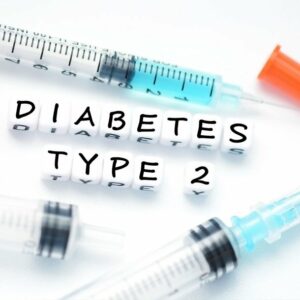
This type of diabetes is characterized by insulin resistance, which means that the body doesn’t use insulin properly and as a result blood glucose (sugar) levels remain high and there isn’t enough sugar for energy.
Symptoms are:
- Extreme thirst, especially if you’re not dehydrated. You know the feeling when you drink a lot of water and your mouth feels dry? Having excessive thirst can mean that there is too much sugar in your blood which makes it difficult for insulin to work properly. This causes high levels of glucose to remain in the blood and this causes your kidneys to filter out more water than usual, which makes you feel thirsty.
- Frequent urination (urinating often) as a result of insulin resistance. Your body is trying its best to lower glucose levels by flushing them out with urine but because there isn’t enough insulin or the cells aren’t reacting to insulin properly, glucose remains in your blood.
- Extreme hunger and cravings for carbs or especially sweet foods can lead to weight gain if you don’t control your eating habits. High levels of sugar are difficult on the body as it is, but when there isn’t enough insulin available, cells aren’t given access to glucose which means that they can’t function properly. This leads to fatigue, tiredness, and weakness as well as weight gain.
Prediabetes
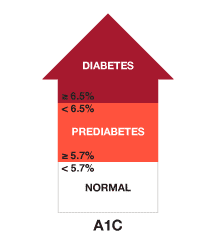
This condition is when your blood sugar levels are higher than normal but not high enough to be diagnosed as diabetes. This means that you have insulin resistance, which causes the cells in your body to react slowly or with reduced efficiency towards glucose.
Symptoms are:
- Extreme thirst, dry mouth, or both. The body is trying to flush out the excess glucose in your blood through urine but because there isn’t enough insulin available to work properly with the cells, glucose remains in your blood and this makes you feel thirsty.
- Weight gain without any change in eating habits or lifestyle. Prediabetes can lead to insulin resistance which means that the cells aren’t properly reacting towards glucose, effectively using it for energy and preventing weight gain from occurring even when you don’t change your eating habits or try to lose weight in any way.
- Frequent urination (urinating often) as a result of insulin resistance. Your body is trying its best to lower glucose levels by flushing them out with urine but because there isn’t enough insulin or the cells aren’t reacting to it properly, glucose remains in your blood causing you to urinate more frequently than usual.
- Frequent infections and/or yeast infections due to high sugar levels. The body’s immune system is compromised when cells can’t get access to glucose which makes it easy for infections and yeast infections to occur.
Gestational Diabetes
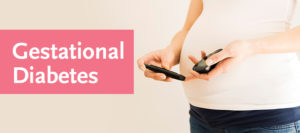
This type of diabetes is one that people are diagnosed with when pregnant. It’s not the same as Type I or II, but gestational diabetics have to be careful because it can lead to birth defects in unborn children and sometimes even miscarriage. This form of diabetes affects women who haven’t had any prior problems with diabetes before but develop it when pregnant.
Symptoms are:
- Extreme thirst, dry mouth, or both due to the body trying its best to flush out excess glucose in your blood through urine. There isn’t enough insulin available for cells to react towards glucose properly which leads them to be unable of finding energy from sugar and the body tries to rid itself of excess sugar through the urine, causing you to feel thirsty.
- Frequent urination (urinating often) as a result of insulin resistance. Your body is trying its best to lower glucose levels by flushing them out with urine but because there isn’t enough insulin or the cells aren’t reacting to insulin properly, glucose remains in your blood.
- Fatigue and weakness as well as frequent infections due to the compromised immune system not being able to fight off viruses, bacteria, etc. The body’s immune system is unable to work effectively because cells are lacking access to energy from sugar which causes you to feel tired easily or weak without any change in lifestyle or physical activity.
Prevention of Diabetes Symptoms
- One can prevent diabetes symptoms by maintaining a healthy weight, increasing activity levels, and eating healthier. If you are experiencing diabetes symptoms it is important to seek medical attention immediately. If you have type-two diabetes it is important to get a blood test each year after your age 40.
- Eating good food and healthy snacks and staying active can help you stay healthy. You can help to maintain or improve health conditions such as high cholesterol, high blood pressure, arthritis, asthma, and osteoporosis.
- When you are experiencing any of these diabetes symptoms it is crucial to get a medical checkup right away. When you are experiencing diabetes symptoms it is important to seek medical attention. If you have type-two diabetes it is very crucial that after your age 40, you get a blood test each year.
- Despite having good food choices and staying active most of these health conditions cannot be prevented; however they can still recover. Good food choices and healthy snacks can improve your health. They can help if you have high cholesterol, high blood pressure, arthritis, asthma, or osteoporosis.
Conclusion
What are the signs and symptoms of diabetes? Diabetes is a chronic condition that can have serious health consequences if not diagnosed, treated, or monitored. There are two types of diabetes type 1 and type 2. Diabetes can be diagnosed in childhood, while type 2 diabetes may be found later in life. Type 1 diabetes is often because of something that someone once did. Type 2 diabetes can come from a choice that some people make. Symptoms for both types of diabetes include having to go to the toilet a lot, being hungry all the time, and being tired even after eating. You might also have blurred vision and slow healing wounds. If these symptoms persist without any changes in your lifestyle, schedule an appointment with a health care provider.
You can also check your blood sugar by using a kit that you can buy from a store. It is available over the counter and it will tell you how much sugar you have in your blood. If these symptoms persist without any changes in your lifestyle schedule an appointment with a health care provider. You can also monitor your blood sugar levels. You can get this at the store and check it several times during the day.
Do you want to get rid of diabetes? Join our online diabetes consultation program and reverse your Diabetes naturally through lifestyle changes such as a Personalized Diet plan, Exercise, dieticians, and health coaches.
